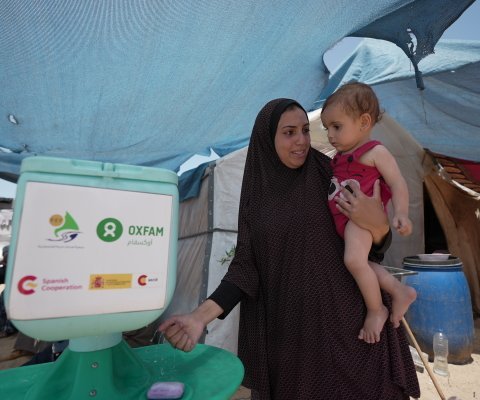Briefs
Search briefs
-
Briefing paper
Priorities for the Securities and Exchange Commission
The current SEC has signaled an ambitious agenda to fulfill its mission to protect corporate investors and ensure the smooth and efficient functioning of the capital markets.

-
Briefing paper
Why a wealth tax makes sense to tackle inequality
Given that wealth inequality in the US is more extreme and dangerous than income inequality, it is past time for a federal wealth tax.

-
Briefing paper
New York State bill can help end the global debt crisis
The New York state legislature has a unique opportunity to pass legislation that would help combat poverty in debt-burdened countries, stabilize the economy, and benefit taxpayers.

-
Briefing paper
Tax wealth, tackle inequality
Wealth inequality in the US is more extreme and dangerous than income inequality; and we need to change our approach, so we effectively tax wealth as well as income. We offer five reasons why a wealth tax makes sense.

-
Briefing paper
False Economy: Financial wizardry won't pay the bill for a fair and sustainable future
2023 could be a turning point. A year when the world emerges from unprecedented crises, and governments deliver progressive reforms that build a brighter future for all, and for the planet.
But despite the dire economic situation facing the poorest countries today, and much political discussion of the trillions needed to tackle poverty, inequality and climate change, there is no indication that rich countries are willing to pay the true price of a fair and sustainable future.
In fact, there is a risk that rich-country Finance Ministers meeting in Washington this week will celebrate progress on reforms that deliver just 0.1% of the climate and social spending gap in low- and middle-income countries (LICs and MICs) between now and 2030. And that they will do so through financial wizardry that doesn’t cost them a cent.
This briefing spells out the dire reality and the true scale of the financing needed in low- and middle-income countries, the inadequacy of the solutions currently under discussion, and the action rich countries could be taking to raise the trillions of dollars that are truly needed.

-
Briefing paper
Speaking Up: The role of women in building peace in Yemen
This paper brings the voices of Yemeni women forward. Women were active in the 2011 protests, influencing political developments at key junctures. However, subsequent armed conflicts militarized the political environment and pushed forward a more limited religious agenda that saw more and more women systematically marginalized in the process.
This paper outlines these major trends and offers some key recommendations to the government and wider international community to better support women’s participation in peace negotiations and involvement in the Yemeni political arena.



